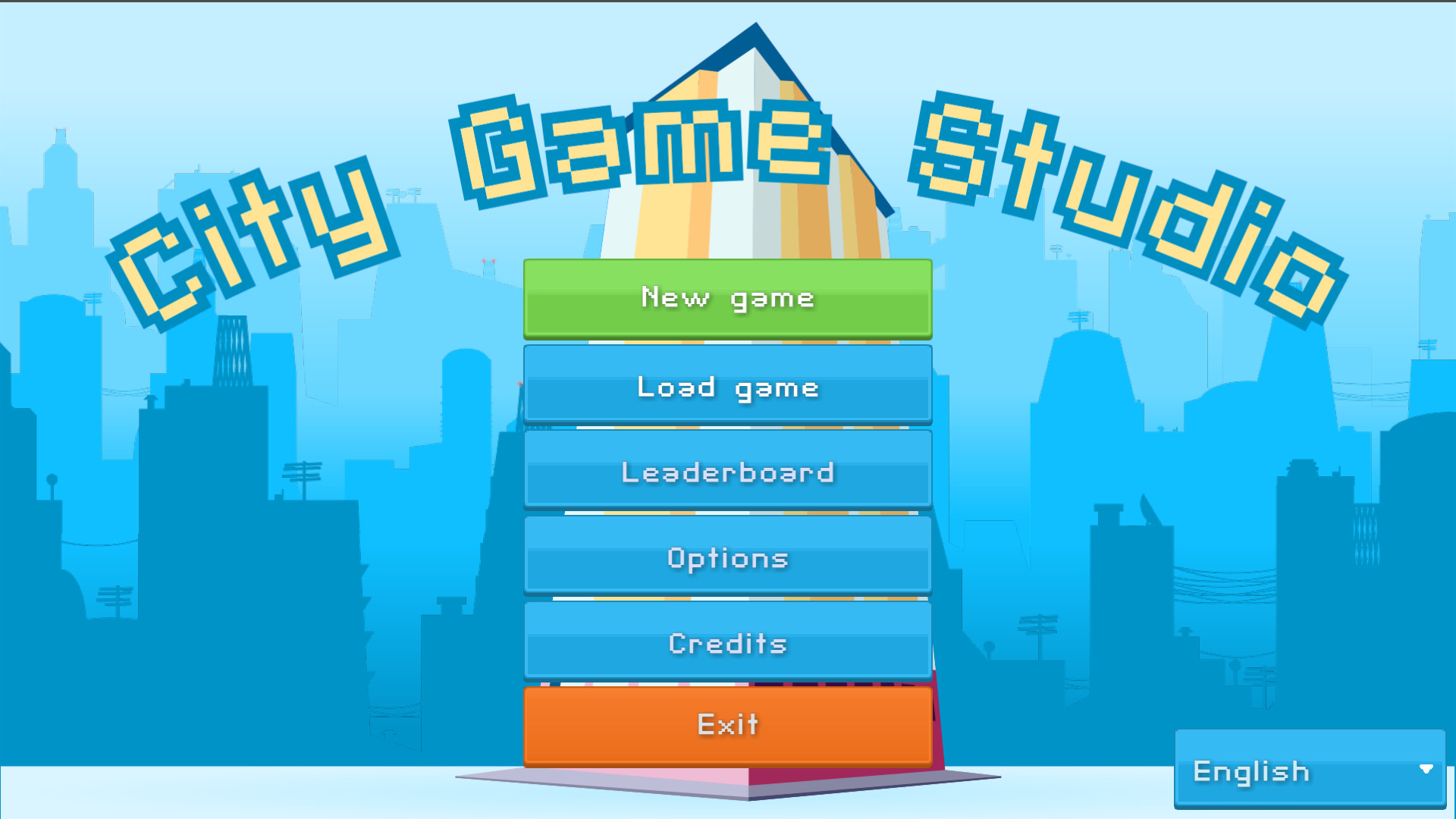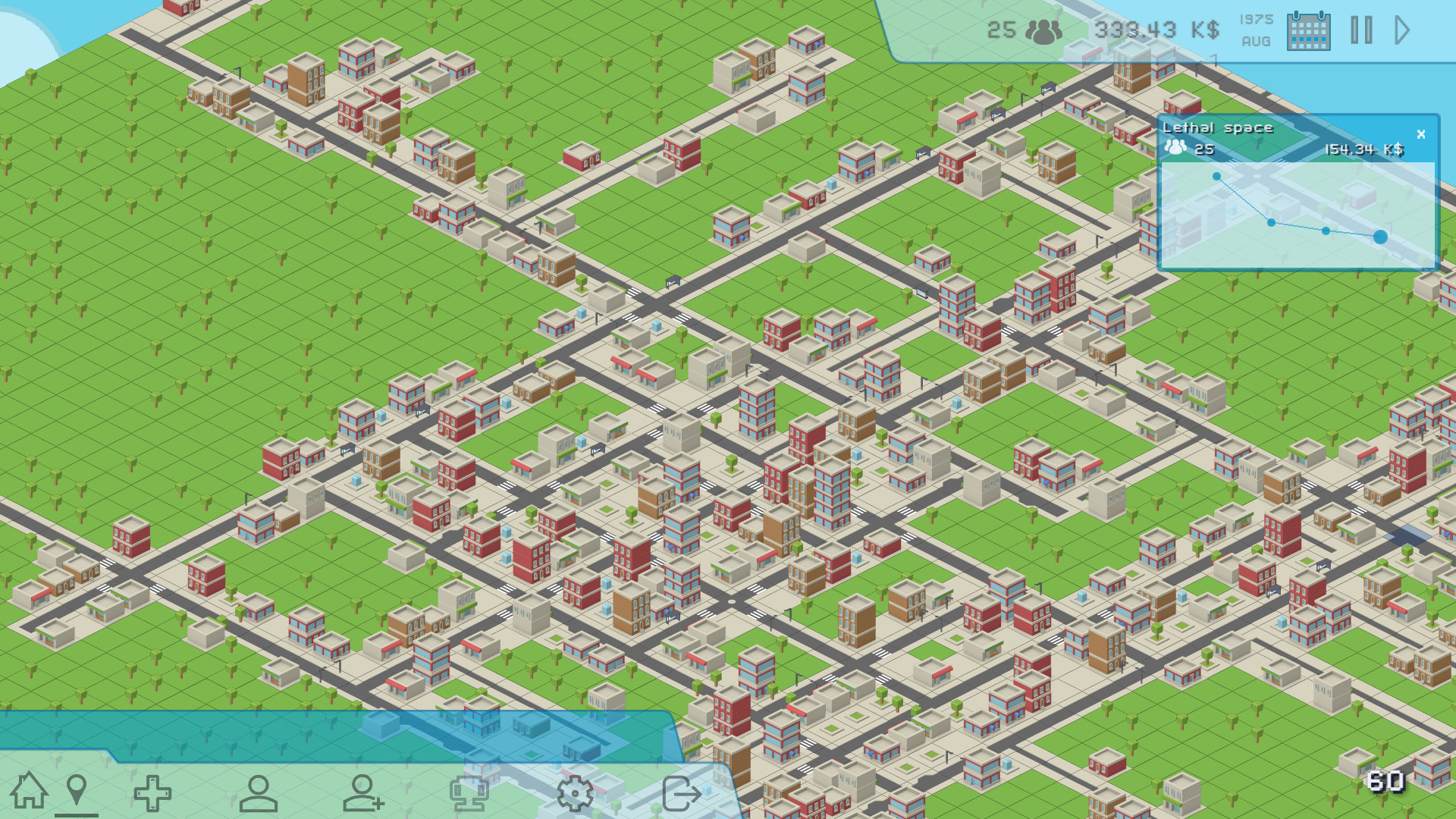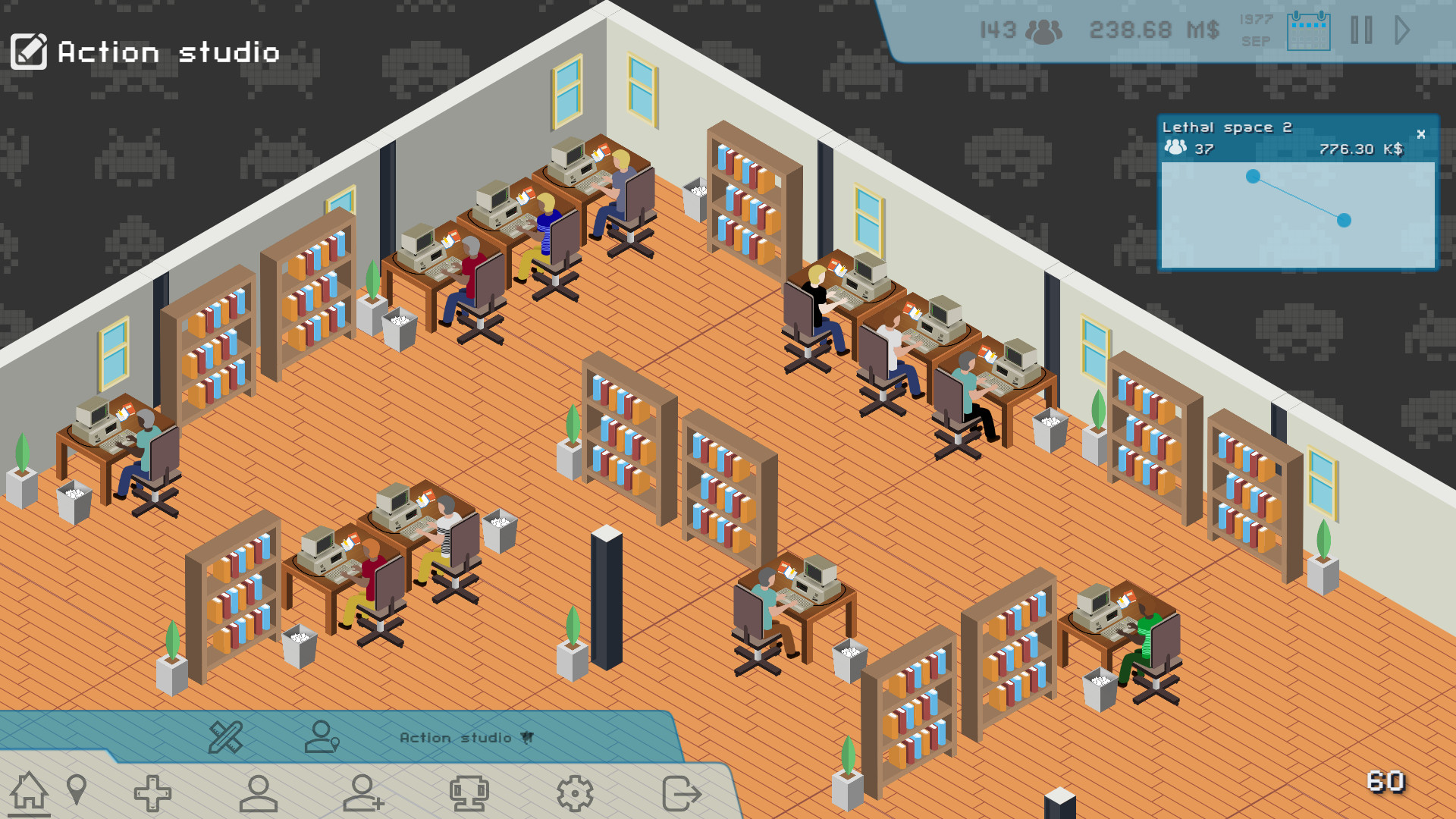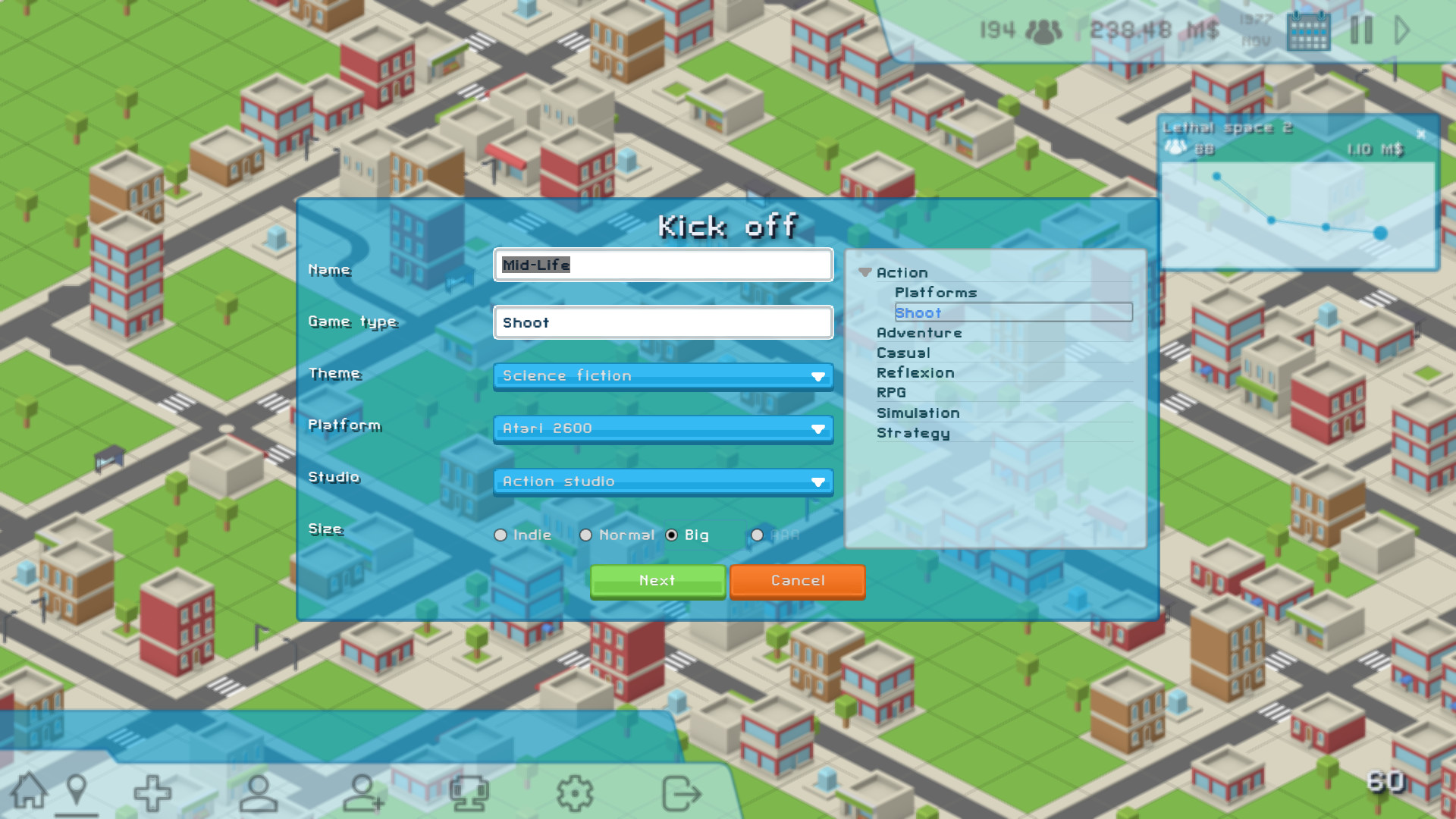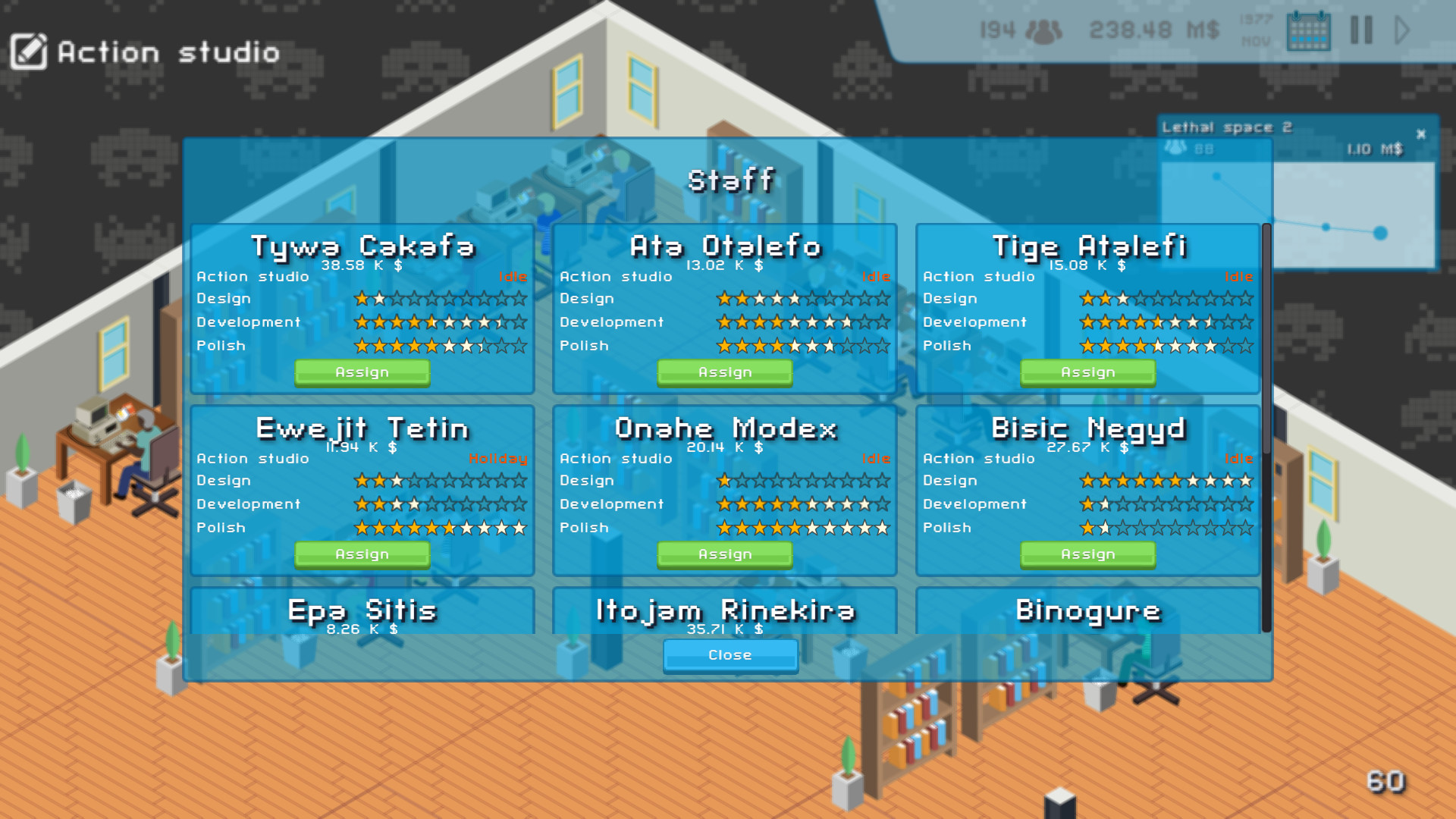January 1975, you have created your video game company. You are renting a tight place that allows you to develop your first game. Quickly, your games are successful and you already have to move, but it is up to you to cross the city to pick up your next local. In the blink of an eye you are hiring artists to improve the visual aspect of your games. Next came developers and then testers. But a problem remains, even if your games are brilliants, you don't have enough fans to self-publish a big game to make your studio profitable. You will have to turn to video game editors who will carve out the lion's share. Combinating successes is the only way of getting rid of the publishers. Furthermore you will be able to publish your own publishing contracts. Then you will then be ready to dominate the market and buy back your competitors.
Each game is unique
Maps and studios are procedurally generated. Combined with random events and customizable studios, you will rediscover the game with each new game.Assign the best studio
Browse the cities and choose the location of your next studio. As my uncle said "we do not hire new talents with vinegar !"Furnish your studios carefully
Everyone is not a studio designer, yet every piece of furniture has its place in your studio, and can have an influence on the history of your company.Publish, hire, repeat
Each game is unique, but over time new generations of consoles come out. You cannot create a bestseller alone. You have to hire new talents that will help you creating the perfect gameGame development
The development of the game is broadcast on twitch using the channel binogure.Hello everyone!
Summer's here, so I'm easing off a bit. I admit I haven't been very productive on the development front lately. Lots of small fixes, some rather old bugs and a few small visual improvements.
Community-wise, as always, I've been present, I've read you, and you've come up with some great ideas for the banker. Thank you for the ideas you've shared, and let me tell you what's going to be added for the banker.
For the easiest difficulties, the banker will offer you some nice choices, but not without consequences.
Following on from your ideas, in the first three difficulties, the banker will suggest that you sell your game engine, if that's possible of course.
Or maybe sell your console, or your competitors' shares. He may also require you to work with a competitor to publish one of their games.
Granted, these aren't always pleasant choices, but a banker is still a banker, and a banker rarely gives you good news.
OK, let's move on to higher difficulties. The banker will force you into more painful choices. He may force you to close one or more studios and lay off all its employees. You're going to give a good impression of a responsible manager who pleases his creditors. The banker may ask you to resell one of your games to bail out the company. He may also demand that you sell your dematerialized store, which you can only get back in exchange for a substantial fee.
In short, implementing the banker's discussion is easy, though it's the choices he'll give you that give me a hard time. There's nothing in the game about disabling certain features, or reselling a game, console or game engine. However, closing studios is already an easier thing to do, as is laying off employees, selling market share or even working for a competitor.
As for the banker's face, it may change and I may draw a more contemporary one.
Next week, I'm going to start reviewing bankruptcy management in depth.
Until then, take care.
Xavier aka Binogure
Minimum Setup
- OS: Linux Kernel 4.0. Mesa 12. X11 7 (or above)
- Processor: Single CoreMemory: 2 GB RAM
- Memory: 2 GB RAM
- Graphics: OpenGL 3.0 (1280x720)
- Storage: 512 MB available space
Recommended Setup
- OS: Linux Kernel 4.0. Mesa 12. X11 7 (or above)
- Processor: Dual CoreMemory: 4 GB RAM
- Graphics: OpenGL 3.0 (1600x900)
- Storage: 512 MB available space
[ 6406 ]
[ 6040 ]
[ 2652 ]
[ 4909 ]

